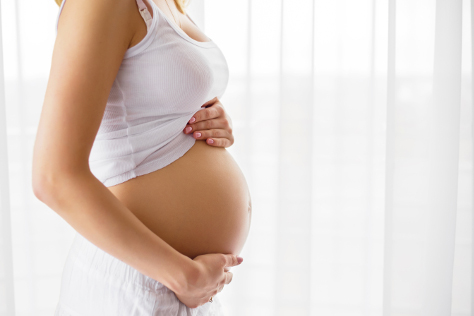1. Get travel insurance
Or, if you already have it, double check it covers you for anything pregnancy-related. Some travel insurance companies have specific requests that you need to do before travelling. Most travel insurance companies, and airline companies, require a doctor's letter to certify you fit to fly. This is more rigidly insisted upon when you are more than 27 weeks pregnant, but it's also just best to get your doctor's okay before you travel. Your GP will know whether or not you're safe to fly, and what precautions you should take, if any.
2. Choose your destination wisely
It's best to choose a destination that is safe, comfortable and has access to good healthcare.
Destinations in Europe are your best option: flights are relatively short, there are no specific vaccinations you need before travelling, and you should have relatively good access to hospitals. Also, what's nicer than just lounging in the sun in Spain or Italy? Not to mention the delicious cuisine!
3. Travelling in the different trimesters
Most women will travel between their 4th and 6th month of pregnancy, as this is often the safest time to travel. Your first trimester (1 to 12 weeks) is when side effects such as morning sickness are most common, and your risk of miscarrying is higher. Between weeks 13 and 27, any sickness will have subsided and you're not likely to go into early labour.
From week 28 onwards (your third trimester), you will have to get a letter from your doctor to say you're fit to fly. By week 36, it's advised you don't fly at all.
4. Find out about any health considerations
While it's always exciting to eat new and interesting foods when you're on holiday, there are certain foods you should not eat while you're pregnant. Some foods are more prone to lead to food poisoning, no matter who eats them, but again, not worth risking while you're expecting.
Patê is to be avoided at all costs, because there is a high chance it might contain listeria, which can affect pregnant women more than anyone else. Cold cured meats are also advised against because they are not cooked, and can contain parasites.
5. Check out the accommodation
There’s a chance you'll find travelling while pregnant more tiring than before you were expecting, so it's important to make sure you know what type of accommodation you'll have. Avoid hotels that have no lift, and definitely don't book into a hostel. Read the reviews for the accommodation online before you book, and look for 'family-friendly' hotels or villas. These are more likely to be quiet and homely, instead of a hotel full of hen and stag parties!
Why don't you see if your hotel comes with a spa? You could indulge in a manicure, pedicure or pregnancy massage while on holiday to pamper yourself.
Travelling while pregnant used to be a no-no, but with careful planning, you can have a great holiday with your bump!
 |
| Image Source: http://www.pregnancyview.com/planning-an-international-babymoon/ |
*This post is a collaboration.






















No comments